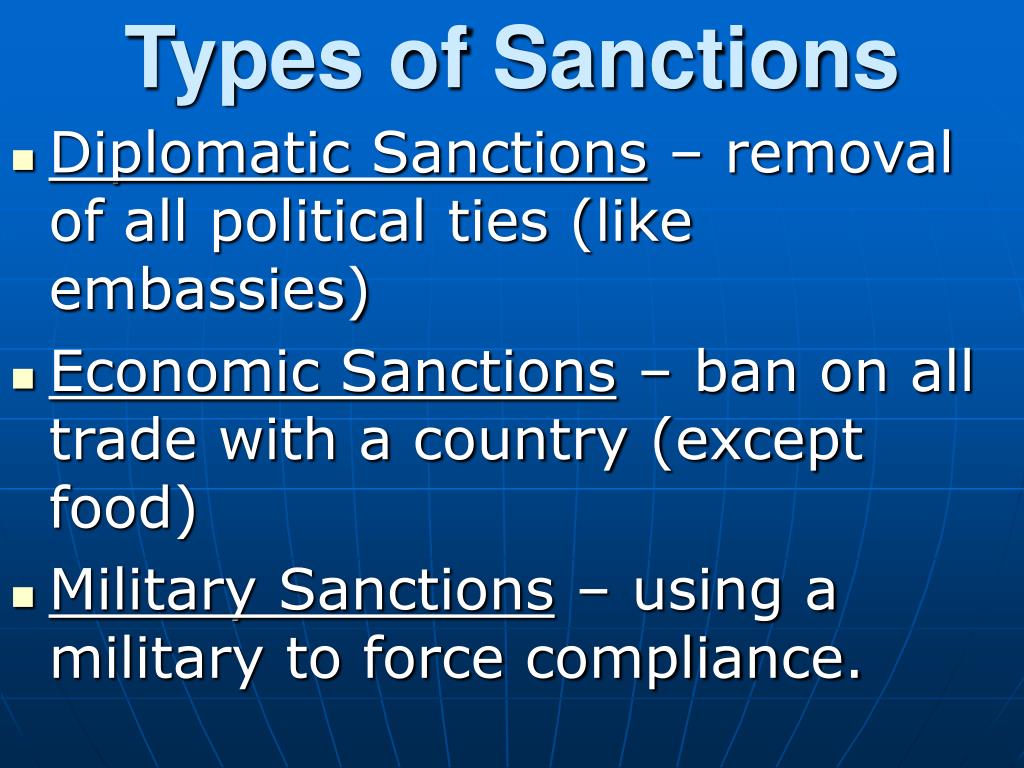

The Abyssinia Crisis in 1935 resulted in League sanctions against Mussolini's Italy under Article 16 of the Covenant.

Embargoes can be an opportunity for some countries to develop self-sufficiency.

The effectiveness of embargoes is thus in proportion to the extent and degree of international participation. In response to embargoes, a closed economy often develops in an area subjected to heavy embargoes. Embargoes can mean limiting or banning export or import, creating quotas for quantity, imposing special tolls, taxes, banning freight or transport vehicles, freezing or seizing freights, assets, bank accounts, limiting the transport of particular technologies or products (high-tech) for example CoCom during the Cold War. Embargoes are generally considered legal barriers to trade, not to be confused with blockades, which are often considered to be acts of war. Embargoes are considered strong diplomatic measures imposed in an effort, by the imposing country, to elicit a given national-interest result from the country on which it is imposed. in a general sense, a trading ban in trade terminology and literally " distraint" in juridic parlance) is the partial or complete prohibition of commerce and trade with a particular country/state or a group of countries. An embargo (from the Spanish embargo, meaning hindrance, obstruction, etc. Īn embargo is similar, but usually implies a more severe sanction. Since the mid-1990s, United Nations Security Council (UNSC) sanctions have tended to target individuals and entities, in contrast to the comprehensive embargoes of earlier decades. Economic sanctions may include various forms of trade barriers, tariffs, and restrictions on financial transactions. The efficacy of sanctions is debatable-there are many failures-and sanctions can have unintended consequences. Economic sanctions can be used for achieving domestic and international purposes. Economic sanctions are not necessarily imposed because of economic circumstances-they may also be imposed for a variety of political, military, and social issues. Economic sanctions are commercial and financial penalties applied by one or more countries against a targeted self-governing state, group, or individual.


 0 kommentar(er)
0 kommentar(er)
